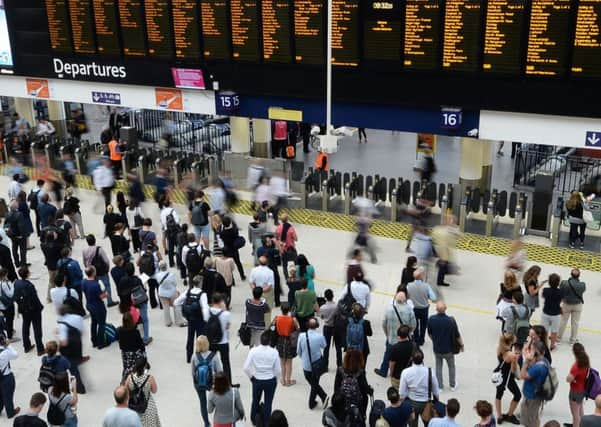Duncan Simpson: Nationalisation won't get the railways back on track


The truth is that our quasi-privatised rail system actually works rather well. Passenger satisfaction stands at 83 per cent in the latest national survey conducted. Satisfaction outweighed dissatisfaction in 35 of the 38 categories assessed (Wi-Fi on train and stations and the absence of power sockets being the exceptions).
The efficiency of train operating companies (franchises which are responsible for train services on certain routes of the network) has also improved since they were created. In 2016, the utilisation of the UK rail network was found to be roughly 60 per cent higher than the EU average.
Advertisement
Hide AdAdvertisement
Hide AdThe comparison often made with more integrated, state-heavy European systems is superficial. (Some) fares on (some) similar routes are indeed cheaper, but the taxpayer has already picked up a lot of the tab: German support for rail runs at roughly three times that of the UK, for instance.
But there are two points that need to be made time and again. First, the rich use rail far more than the poorest, yet the poorest have to subsidise the travel of the richest: the top fifth of households by income travel six times further on trains than those in the bottom 20 per cent. Why should a Buckinghamshire banker’s train fare be partially covered by those who commute to work in their cars in the North East?
Second, the idea that the franchise operators rob taxpayers of billions is a lie and needs to be named as such. The East Coast nationalisation between 2009 and 2015 actually generated no dividends (except in the final year), and the cost to the taxpayer (the difference between Government subsidy to the train operator and premium payments from the franchise to the Department for Transport) came to almost £80m over the six year period.
Looking at the larger picture, there has been a gradual decline in the total level of taxpayer support to the train operating companies. The total subsidy per passenger kilometre fell by 43 per cent between 2008 and 2017 to 4.9 pence per kilometre. In other words, those who actually use the train for their commute are paying for it, and taxpayers who rarely or never do step onto a train are shouldering less of the burden. This doesn’t include taxpayer spending on Network Rail, but the trend is clear.
Advertisement
Hide AdAdvertisement
Hide AdIn 2015-16, the total dividends paid out by all train operating companies came to £228m. The idea that fares could be cut dramatically if only shareholders did not have to be looked after is a fantasy.
Things aren’t perfect from the perspective of both the commuter and the taxpayer. Network Rail still costs taxpayers billions, with a fine recently levied for repeated failure to stop the delays that they regularly cause. And their corporate governance and debt pile is increasingly precarious.
Commuters are also right to be angry at some train operating companies for providing less service with more of their wages, though as highlighted above, the perception (and reportage) often doesn’t match the reality.
Overall, however, franchising has been a good thing. The number of passenger journeys is up over 130 per cent since the end of British Rail and fare rises have kept pace with the increased demand for rail travel.
Advertisement
Hide AdAdvertisement
Hide AdRe-nationalisation would remove the commercial incentive to grow volumes and revenues on the railway and, over time, lead to less use of them. This would be a poor deal for taxpayers.
Duncan Simpson is a policy analyst at the TaxPayers’ Alliance and author of Nationalisation: The Real Rail Rip-Off that was published this week.